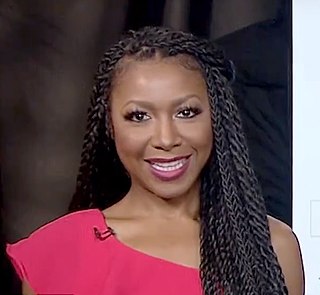A Quote by Amber Tamblyn
I think at the end of the day this movie is respecting what we as women go through as we grow up. The experiences, what we deal with, other women, things about images, things that we deal with as women.
Quote Topics
Related Quotes
You're allowed to make things for women on television, and there's not like... you don't have to go through the humiliation of having made something directed at women. There it's just accepted, whereas if it's a feature, it's like 'So, talk to me about chick flicks.' It's like... I don't think you want to hear my opinion about this.
Competition gives birth to a lot of success, and if no one ever challenged you, you wouldn't go anywhere. It makes sense to compete with others for a promotion at work. But so many women take it a step further and won't even support other women. They end up competing over things that don't make sense - like how we look.
If white American feminist theory need not deal with the differences between us, and the resulting difference in our oppressions, then how do you deal with the fact that the women who clean your houses and tend your children while you attend conferences on feminist theory are, for the most part, poor women and women of Color? What is the theory behind racist feminism?



































